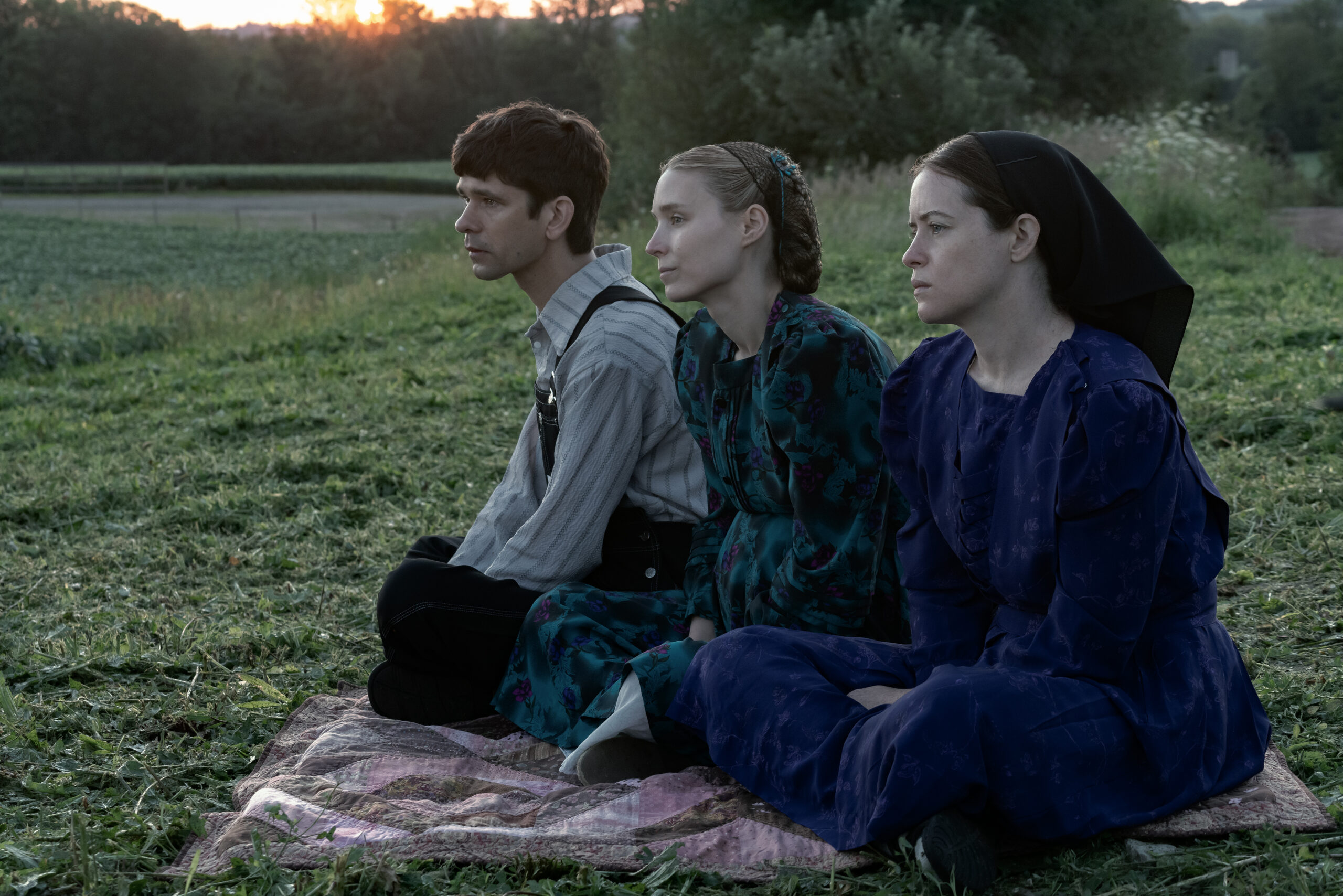To say Sarah Polley is an accomplished filmmaker is an understatement. From her first onscreen appearance at age four; to her transition into more adult roles with films such as Go, The Sweet Hereafter,and Zack Snyder’s remake of Dawn of the Dead; through to her career behind the camera, writing and directing a number of short films, documentaries and feature films, to receiving an Oscar nomination for her feature debut film Away from Her, it’s clear she has had an outstanding career so far.
Jump to 2021, when during a global pandemic, with safety precautions in place, Polley completed principal photography on her latest feature, Women Talking. Based on the 2018 novel of the same name by Miriam Toews, Women Talking is inspired by real events that occurred in a Mennonite community where a number of women were brutalised by the colony men. Throwing the audience into the immediate deep end of the situation, the film introduces its cast of characters as they attempt to grapple with reconciling the harsh truth of their reality, over the two days the men retreat to the town to bail out the attackers who were found out and arrested.
While they are gone, the women of the colony have a vote; to stay and do nothing, to fight or to leave. Drawing a tie between fighting and leaving, a group of women retreat to a hayloft to discuss their options and come to a final decision. For two days, tension boils and discussions ensue as relationships and beliefs are tested in order to find the right outcome.
With an outstanding ensemble cast, starring the likes of Rooney Mara, Claire Foy, Jessie Buckley, Sheila McCarthy, Judith Ivey, Ben Wishaw and Frances McDormand, though her presence is short-lived, Women Talking relies heavily on its performances, and safe to say everyone brings their A-game. Grappling with extremely confronting themes of physical, mental and faith-based abuse, Sarah Polley has presented her cast with a challenging task.
Never naming or presenting the attacks or attackers on screen, Polley only ever alludes to the violent acts of the colony men, but bears the results for all to see through the films a cruel and harsh reality. In doing so, Polley strips any power away from the film’s attackers, only ever referring to them as such and never mentioning their actions by name or in detail.
Whether through fleeting outbursts from Jessie Buckley’s Mariche and Claire Foy’s Salome, or through the more subtle pain in the voices of Rooney Mara’s Ona and Sheila McCarthy’s Greta, Polley scatters anger, frustration and pain throughout every piece of dialogue and movement, amplified by every single performance. Big or small.
As the days come closer to night, discussions fill with more passion and uncertainty. While Salome is certain in fighting back against her attackers, Mariche believes that forgiveness is the only option as a surety of being granted entry into heaven. To avoid conflict between allies, Ona tasks teacher and one of the remaining men, August, played by Ben Wishaw, to take minutes and draw up the pros and cons of each scenario. Meanwhile, a transgender man named Melvin who after being attacked does not speak, except to younger children, is the only other remaining man in the colony and keeps the children occupied and warns of any developments until a resolution is met.
All of these factors boil into a powerful and challenging piece that depicts the unfathomable struggle these women have to go through in order to make the right decision. No matter how difficult that may be or how far it strays from everything they know. Sarah Polley, for the most part, portrays that call to question in a crushing way.
Occasionally, Women Talking feel as though it is lecturing its audience through a dialogue of harsh truths, which may stand out as more philosophical than what may narratively be expected from its characters, and at times it can be frustrating that those truths are not wholly presented through the more invisible storytelling techniques that can be found throughout. Visually, the film also carries the dreadful feeling of the situation through Luc Montpellier’s bleak cinematography.
Taking place almost entirely within one room, and through heavy dialogue, Women Talking can come across as feeling stagy through segments of its runtime. It ebbs and flows through moments of heated discussion and reflective contention for the situation at hand. Intermittently feeling slow in its pacing or forceful in its themes, the film can feel cumbersome through various moments.
However, it’s clear through Polley’s screenplay and direction that she is wanting to truly work the film’s messages into the audience to ensure nothing is overlooked and succeeds in doing so. It can become overbearing on occasion but is balanced by moments of humanity in small bursts of relief. This can come in moments of shared laughter between characters, or through visual treats of children playing, oblivious to the demons within their shared space.
All said and done, the female experience is obviously not a shared experience. Women Talking is a necessary challenge for audiences and once again poses an always required discussion. While it may elude some audience members through its complex themes and messages, it is certain to engage and emotionally resonate with most. It tackles confronting and powerful themes in a way that, while not always perfect, is nevertheless important. With a terrific cast, a clear and committed vision from Sarah Polley, and a final moment filled with so much power and hope for the future, Women Talking is a film that will leave audiences blood boiling and their heart torn open, to hopefully sow the seeds of discussions for now and evermore.
Director: Sarah Polley
Cast: Rooney Mara, Claire Foy, Jessie Buckley
Writer: Sarah Polley, (based on the book by Miriam Toews)



